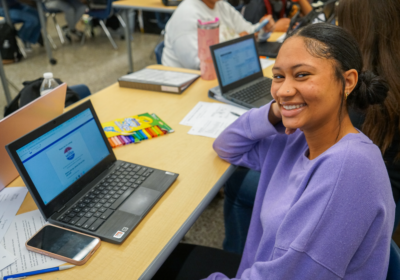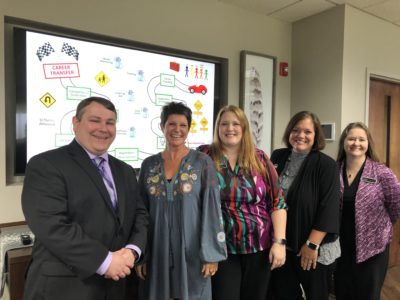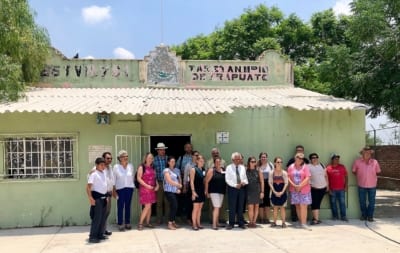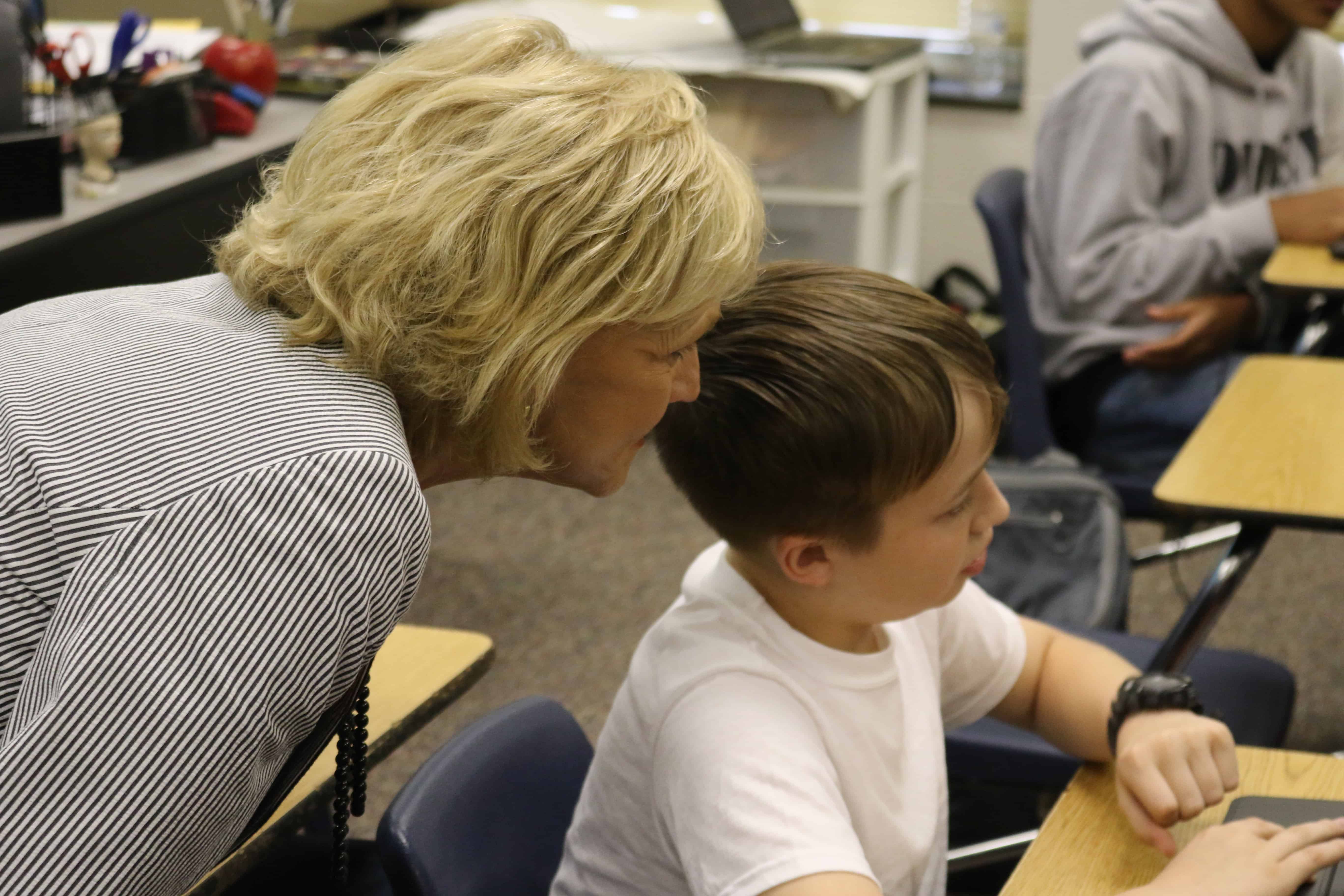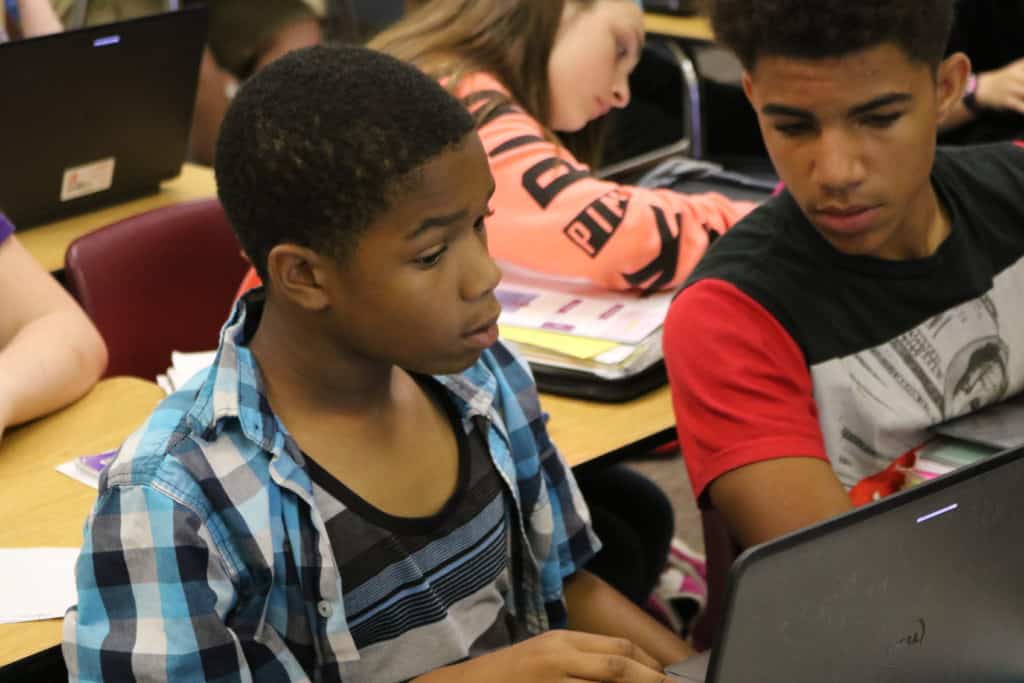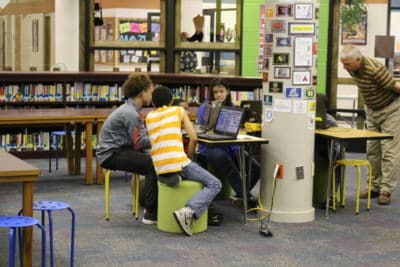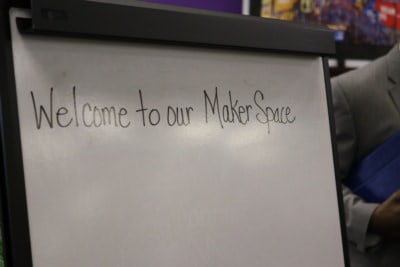In 1987, just after I went to college, Bev Perdue was elected to the North Carolina House of Representatives. In 1991, just after I went to law school, she became a state senator. She was the first woman to chair our all-important appropriations committee. She later served two terms as our Lieutenant Governor — sitting on the State Board of Education and State Board of Community Colleges — before becoming North Carolina’s first woman governor in 2009.
I always thought her first policy love was aging — much of her career was spent working with seniors. But Perdue began her career as a public school teacher. She earned her master’s in community college administration and her doctorate in education administration.
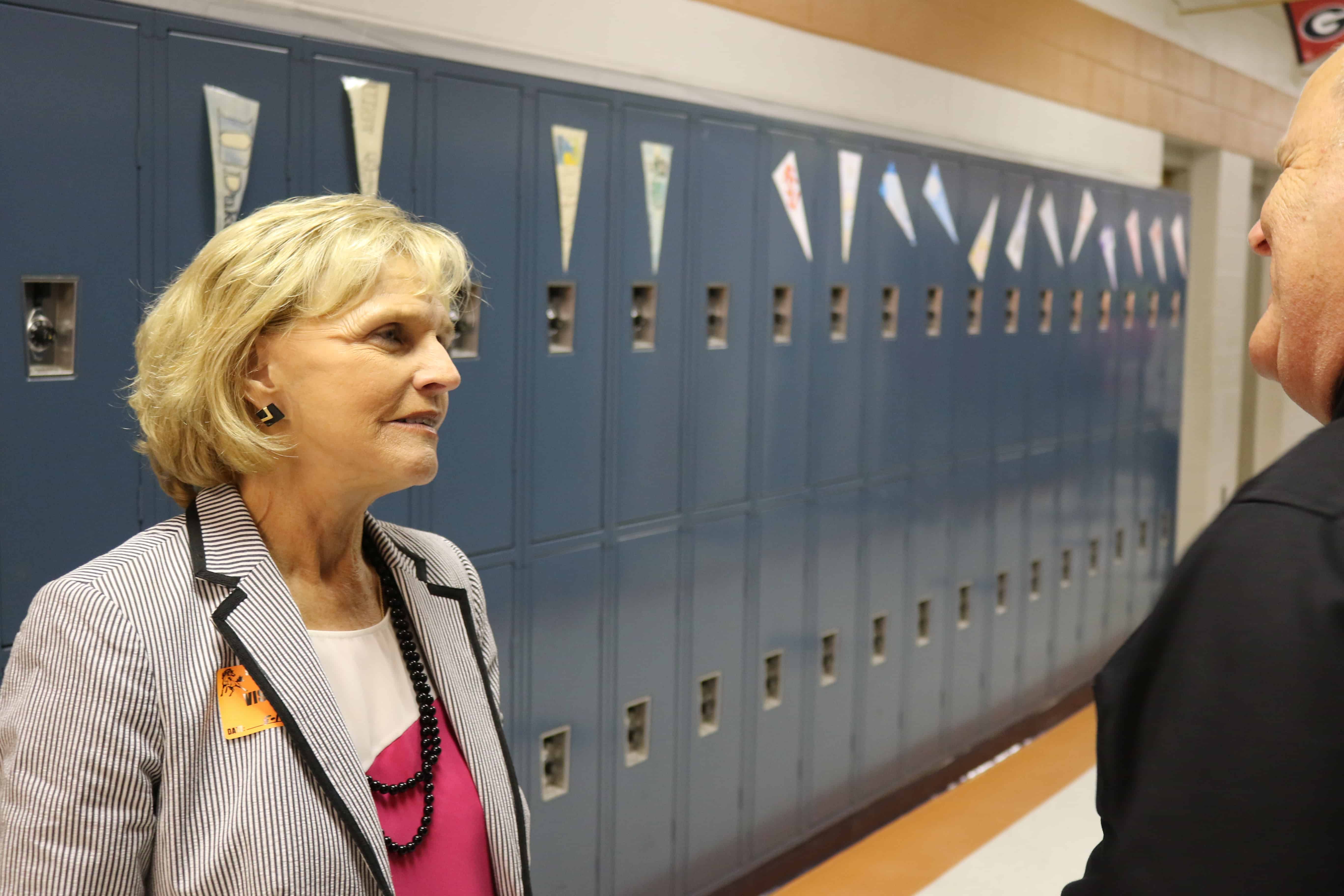
“This is my real passion,” Perdue says to me the first time we sit down to talk about digital learning.
“This is the difference maker for every child.”
In the 1990s and early 2000s, Perdue remembers the state trying a lot of things — in part because of the Leandro lawsuit, which guarantees every child the right to a sound, basic education.
A renewed focus on the issue of education. More money. An array of policy changes. But things didn’t end up looking a lot different, she says.
Perdue began talking to teachers, policymakers, leaders in the private sector, anyone and everyone about how to “expedite outcomes.” She knew students were not sufficiently or adequately prepared for work.
As Perdue began to focus in on digital learning, she worried that “rural counties didn’t have connectivity.” She wanted to get broadband to the school districts in three years. The N.C. General Assembly, at the time, was skeptical but did provide some state funding that enabled Perdue to leverage federal e-rate dollars. Perdue says, “Superintendents came on board realizing the benefits of all having access to this sophisticated content.”
But as the story of digital learning across North Carolina unfolded, Perdue noted a disconnect between the businesses that were innovating the content and the students and teachers who were using the content.
From all of those years in government, she knew some things. First, states didn’t understand that policymakers were the bankers, a conduit for federal dollars. “What comes in the classroom door depends on them,” she says. Second, in the world of technology, “there is a real role for the private sector to build out something new for students and teachers.” Third, there needs to be a way to ally teachers with the developers. “That’s how good content will happen in this country,” Perdue notes.
Perdue saw a need to accelerate the creation of high-quality digital content that works for students and teachers. Our private sector has the know-how. Federal dollars are available. And there is political will.
“I can’t give them enough credit on this issue,” says Perdue, talking about North Carolina’s Republican legislators. Rep. Craig Horn, R-Union, was an advocate from the get-go, she says. This General Assembly, she goes on, has “finished the story, putting a period at the end of the book,” and she hopes and expects North Carolina to become a national role model for other states when it comes to digital learning.
“You can’t make any change in education without innovative policymakers,” Perdue says.
When it comes to her role in this story, Perdue is quick to say that Myra Best has been a driving force in pushing the work of digiLEARN. Best currently works as project director for digiLEARN, and she served as special advisor to the Governor on e-learning and education innovation from 2009-12.
Perdue says she sees the possibilities of digital technology: “We have a shot at creating a high-quality system of education that is accessible to all. A child’s zip code won’t matter anymore.” But also the risk: “It won’t work if we overlay tech on what we are already doing.”
Best says, “We can put technology in the hand of every learner so they can take control of their learning.” Perdue chimes in, “That’s the most exciting part. We can personalize learning.”
“Teachers,” Perdue emphasizes, “remain the essential ingredient for student success…always.”
“digiLEARN will bring together educators, entrepreneurs, policymakers, and other thought leaders as it works toward a future-defining educational system fueled by an integrated and innovative digital culture that prepares all learners — and our nation — to flourish in an increasingly technology-driven world.”
All of this sets the stage for digiLEARN, a nonprofit organization founded by Perdue “dedicated to accelerating digital learning for all ages with a goal of increasing personal learning options for students and expanding instructional opportunities for teachers and instructors.”
Perdue says she and Best wanted to continue their public service. “Our passion has always been public education,” she says. They are both dead set on giving teachers access to the best tools, and their determination is palpable.
Perdue is convinced. “This can change the face of education,” she says. “It keeps me awake at night.”
“We deeply believe in education. It gives us hope as a state.”
This week, we hope you will enjoy learning more about digiLEARN, and Perdue’s current work to improve education. We did. It will be interesting for our state and our nation to watch her leadership continue to raise the bar.
Recommended reading
